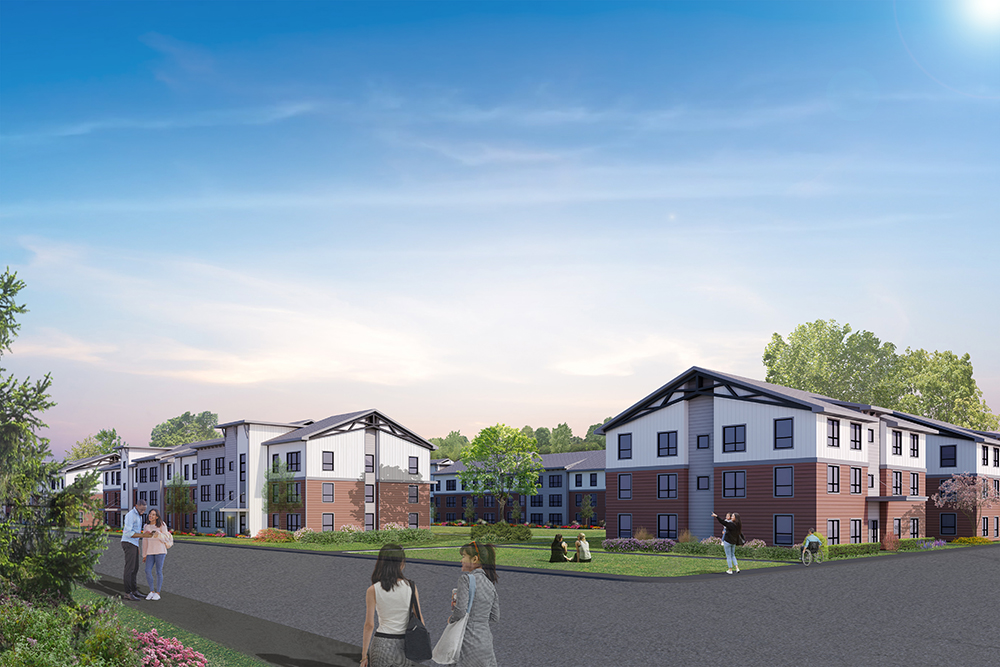
Concord, NH Dakota Partners has secured all financing and approvals to close on Phase 1 of The Rail Yard, a new affordable housing apartment community that will feature housing for local residents earning between 30% and 60% of the Area Median Income (AMI). Financing for this project has been secured through a combination of soft debt financing and a permanent debt construction loan from New Hampshire Housing (NHH) and federal tax credit equity from Stratford Capital. Construction is scheduled to begin this summer.
With waitlists for affordable and subsidized housing stretching from six months to several years, the demand for safe and affordable housing in the area is strong. Planned in three phases, The Rail Yard will feature 199 total units in four newly constructed, three-story wood-frame buildings. Phase 1 will be comprised of 96 affordable units and a 2,500 s/f clubhouse. The one- and two-bedroom units will be eligible for residents making 30-60% AMI.
The 34-acre site was previously the site of the Boston & Main Railroad, dating back to 1842. More recently, the blighted site had fallen into disrepair. This new affordable housing community will provide safe, vibrant, and affordable housing to the community while also revitalizing the area.
“The Rail Yard apartments will provide much-needed homes for our state’s workforce at a time when there is a very low inventory of apartments and increasing rents in Concord and elsewhere in the state,” said Ignatius MacLellan, managing director of NHH’s multifamily housing division. “Key financing for these 96 one- and two-bedroom units comes from the allocation of federal Low-Income Housing Tax Credits (LIHTC) by New Hampshire Housing, as well as tax-exempt bonds issued by NH Housing. The LIHTC program is an important public/private financing tool that encourages developers and investors to create affordable multifamily housing for low- and moderate-income families by using tax credits to leverage private equity investment in these properties.”
 (1).png)







